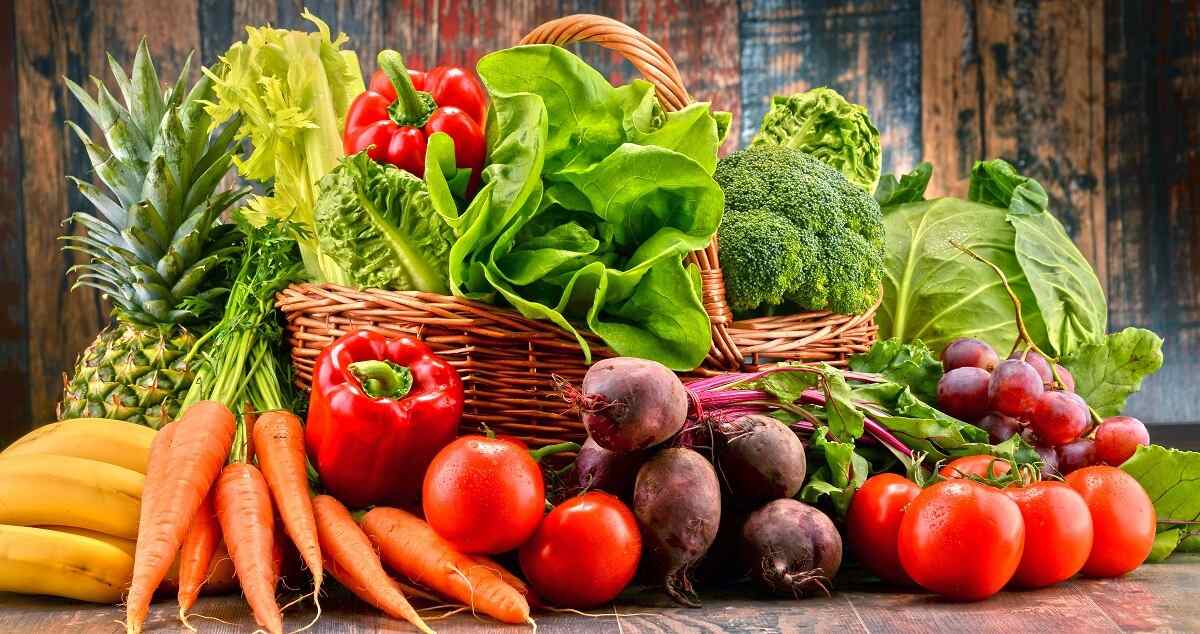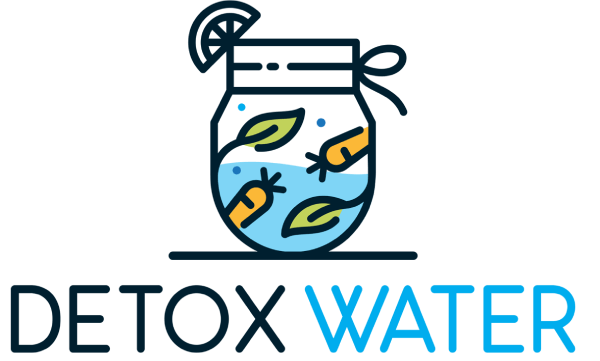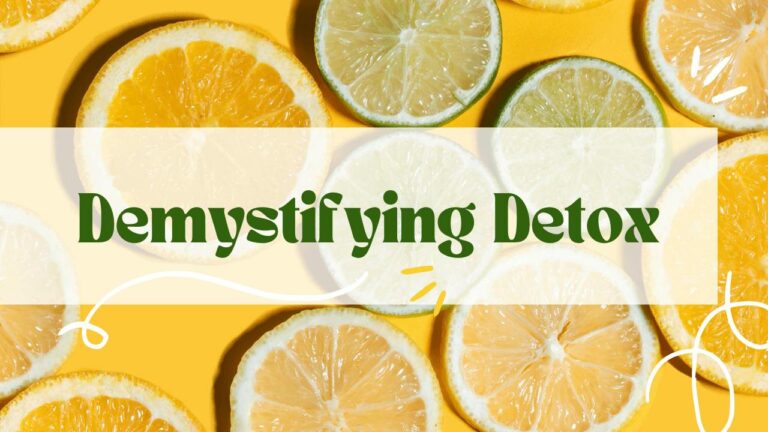13 Of The Best Detox Vegetables To Include In Your Diet

Detox foods have become increasingly popular as people have become more conscious of the health benefits of consuming these specially-categorized vegetables.
Detoxifying foods help flush pollutants from the intestinal system, promoting better digestion and cleansing of the digestive tract for improved overall health.
With a wide variety of detox vegetables available, they can help remove toxins from the body and improve gut health. And besides, they are easy to prepare and delicious to taste.
Contents
Understanding Your Body’s Natural Detoxification Processes
Detoxification is an essential process for sustaining health and wellness.
Our bodies have various natural processes to help filter out toxins caused by environmental pollutants and unhealthy dietary habits.
Let’s look at these detoxification processes that keep us healthy.
The Liver
The liver plays a vital role in the body’s detoxification process. It acts as a filter, removing pollutants from the blood before they are returned to circulation.
The liver helps break down harmful substances like alcohol and drugs, which are processed and excreted through sweat or urine.
Additionally, the liver metabolizes fat-soluble toxins, broken down into smaller molecules to be expelled as waste.
Some vegetables such as beet greens, brussels sprouts, spinach, and artichokes help the liver detox by increasing gallbladder bile production to support digestion, cleanse your body and eliminate waste.
The Respiratory Tract & The Skin
Your respiratory tract is another crucial player in eliminating toxins from your body. When you breathe air containing pollutants such as smoke or dust particles, your lungs filter them out before reaching deeper tissues.
Similarly, when you come into contact with environmental pollutants such as pesticides or heavy metals through skin contact or inhalation of fumes, your skin flushes them out of your system through sweat glands located all over the surface of your skin.
But the effectiveness of this process varies depending on various factors. They include the type of toxin and its abundance in your body. Some toxins can be absorbed through the skin and may not be easily eliminated through sweating.
The Kidneys
The kidneys act as another filter system in the body’s detoxification network, removing excess water and waste products from the blood to create urine.
Urine contains various compounds that can be further processed and eventually eliminated from the body. They include urea (a nitrogen-containing compound), creatinine (a protein-breakdown product), uric acid (an amino acid breakdown product), electrolytes (like calcium, magnesium, and potassium, sodium chloride), as well as any other waste materials your body needs to remove.
Researchers found that the kidneys filter 180 liters (48 gallons) of blood daily to remove waste via urine. Healthy blood flow is always essential for detoxing your body. One of the best support for the kidneys is drinking water and the daily dose of other foods like beetroot juice.
The Gastrointestinal System
Your gastrointestinal system is also involved in filtering out toxins.
As food enters your stomach and intestines, it is broken down so nutrients can be absorbed while wastes are passed on through the digestive tract to be eliminated from your body via your bowels.
In addition to digestion and absorption of more nutrients, your gastrointestinal tract helps with immune defense against invading bacteria or viruses by secreting antibodies to fight off infections before they enter your bloodstream.
This also helps keep you healthy by keeping toxic substances out of your system. For example, processed foods like hot dogs are first-degree carcinogens and can adversely affect this system.
The Lymphatic System
Finally, the lymphatic system helps remove toxins by flushing them out through lymph nodes. They are located throughout our bodies, such as our necks and armpits. Toxins are filtered here before being eliminated from our systems entirely.
List of the best detox vegetables
While it is unnecessary to go on a detox diet, since the body’s natural ability to detox is sufficient, the following foods will help boost that process.
1. Lettuce
Lettuce contains valuable compounds which are well-known for their contributions to detoxification.
Chlorophyll is a chemical found in lettuce that supports the removal of toxins and chemical waste from the bloodstream.
Lettuce also contains lactucarium, a natural sedative that can help reduce stress hormones in the body.
Furthermore, lettuce is an excellent source of dietary fiber, which facilitates digestion and the excretion of toxins from within the body.
With its vitamin A content, lettuce helps to strengthen vision, while other vitamins and minerals in this vegetable may assist in cell regeneration and support our bodies’ natural detoxifying process.
2. Spinach
Spinach is rich in antioxidants like Vitamin C, beta carotene, and lutein, which work to remove toxins from our system.
It also contains several powerful amino acids that may promote healthy gut bacteria, helping reduce dysbiosis cases.
Additionally, spinach includes many nutrients like magnesium and folate, which assist with liver health by providing vitamins and minerals necessary for the proper functioning of exocrine organs involved in the filtration of toxins.
3. Tomatoes
Incorporating antioxidant-rich foods into your diet can profoundly affect your skin’s health.
According to a study published in the British Journal of Dermatology, people who ate five tablespoons of tomato paste daily, they displayed 33% more protection from sunburn than a control group.
Low-sodium varieties are now widely available. They provide a compelling way to enliven everyday dishes; with their vibrant Mediterranean flavor, tomatoes can liven up soups and sauces.
Whatever you choose, load up your plate with antioxidant-filled tomatoes for extra sun protection. However, it’s important to note that while tomatoes can be a healthy and flavorful addition to the diet, they should not be relied upon as the sole source of sun protection.
4. Cabbage
Eating cabbage has long been thought to have detoxification benefits; recent studies have proven this true.
Cabbage contains glucosinolates that help combat inflammation, destroy free radicals, and activate the body’s natural detox mechanisms.
Due to its sulforaphane content, cabbage is a powerful tool in the fight against environmental toxins, helping flush them from the body naturally.
Additionally, cabbage is packed with vitamins and minerals that support liver health and digestion – both important for proper detoxification.
5. Kale
This cruciferous vegetable contains significant amounts of sulfur-containing compounds and antioxidants, which are excellent for detoxing the system.
Sulforaphane stimulates enzymes involved in detoxifying and helps neutralize toxins in the body.
Research has shown that antioxidants like beta-carotene can help scavenge free radicals, reducing oxidative stress and protecting against damage caused by environmental pollutants.
Furthermore, kale’s high mineral content further supports its ability to assist the body with detoxification processes – magnesium and zinc play an influential role in helping the body break down certain toxins. In contrast, potassium helps pull out retained toxins from soft tissues.
6. Asparagus
Asparagus has a ton of detoxification benefits for the body. For one, it boasts high levels of antioxidants, including vitamin C and various flavonoids, and glutathione which helps neutralize free radicals that cause cellular damage.
Asparagus also contains significant amounts of fiber and inulin, which assist in the elimination of toxins from the intestinal system, as well as minerals like potassium and magnesium that help to flush toxins through the body’s systems.
Finally, asparagus helps support liver health by aiding enzyme production and protecting the bile duct with its folate content.
All these properties help keep our bodies functioning efficiently by eliminating pollutants and other waste buildups that would otherwise accumulate.
7. Celery
Celery is an excellent tool for the body’s natural detoxification processes.
The vegetable has a high water content, making it a natural diuretic. When consumed, celery helps flush out toxins, heavy metals, and obstructing minerals from the kidneys and other organs.
Its organic compounds will bind to these pollutants and facilitate their removal through urination.
Furthermore, celery contains luteolin – an antioxidant that aids the body’s digestion of toxins and promotes a healthy gut ecosystem. The fiber found in celery binds to cholesterol and removes it from the system.
8. Wheatgrass
Wheatgrass has long been touted as a natural detoxifier and enhancer of the body’s in-built purifying system.
Wheatgrass breaks down waste materials within the body while supplying essential nutrients, containing high levels of vitamins A, C, and E, coupled with plenty of antioxidants and enzymes.
While the chlorophyll content is assumed to be behind wheatgrass’ reputation as a detoxifier, studies suggest that other compounds may also play an important role, such as its amino acid content, which helps eliminate toxins via sweat or urine.
However, more research is needed to conclusively determine the specific roles that these compounds play in supporting the body’s detoxification processes
9. Cauliflower
Cauliflower is a powerhouse when it comes to detoxification.
It contains indole-3-carbinol, which helps the body convert pollutants from fatty acids and binds with toxic substances, allowing them to be flushed out through the excretory system.
Additionally, cauliflower helps with liver functioning, as its essential compounds are vital for ridding the system of harmful compounds.
10. Collard greens
Collard greens, the age-old cruciferous vegetable, offer many vitamins and minerals essential for maintaining a strong and balanced system.
They contain beneficial sulforaphane, which activates detoxifying enzymes in the body responsible for removing damaging toxins such as lead and mercury. However, there is limited scientific evidence to support this.
As a bonus, having a diet rich in collard greens provides an excellent source of dietary fiber, helping support healthy digestion.
11. Beets
Beets are nutrient-dense superfoods that pack a potent anti-inflammatory and detoxification punch.
This dense root vegetable contains betalains and phytonutrients that help the body flush out toxins, heavy metals, and other impurities.
Additionally, their high fiber content helps support healthy digestion and encourages matter to move through the digestive system.
Beets also contain vitamins A, B6, & C, folate, and magnesium, which aid in detox formation processes needed for solid waste to move through the digestive system.
Moreover, beets are a rich source of antioxidants that help reduce cell oxidative damage.
12. Parsley
Primarily, Parsley is packed with vitamins and minerals that may aid in the body’s natural detoxification process.
Parsley contains essential compounds like chlorophyll, flavonoids, and polyacetylene, which studies have shown to assist the system in clearing out toxins built up over time.
Furthermore, its diuretic action promotes increased urine production, helping your system eliminate excess water and quickly flushing impurities from the body. If you feel bloated, add parsley to your diet to reduce water retention.
13. Brussels sprouts
Beyond offering a delicious addition to your meal, Brussels sprouts have long been thought to help detoxify the system.
Research has revealed that many compounds naturally found in sprouts may act as antioxidants, fighting harmful free radicals throughout the system and promoting healthy liver function.
They also contain vitamin C and other micronutrients that support longevity, like sulfur and glucosinolate. As a result of these benefits, adding Brussels sprouts to one’s diet can effectively aid in healthily eliminating pollutants from the system like other veggies on the list.
Consider incorporating a colorful gluten-free pasta salad into your diet for a refreshing and gluten-free twist on detoxifying meals.
The Benefits of Eating Detox Vegetables
Improve Digestion & Gut Health
Detox vegetables are full of dietary fiber, which helps cleanse the digestive system and intestinal tract.
Fiber helps food move through the digestive tract more quickly and promotes regularity by increasing stool bulk and reducing constipation.
It also binds to pollutants and harmful compounds in the body, helping them pass out of the system efficiently.
Additionally, detox vegetables contain probiotics that support gut health and help balance bacteria levels in the intestines.
Boost Energy Levels
Detox vegetables can help increase energy levels due to their high nutrient content. In addition, they contain essential vitamins and minerals that help sustain energy throughout the day.
For example, spinach is packed with iron which helps transport oxygen to cells so they can function correctly.
Other detox veggies like asparagus are rich in vitamin B, which helps convert food into fuel for your body’s daily activities.
Aid in Weight Loss
Detox vegetables are low in calories but high in nutrients, making them an excellent choice for those looking to lose or maintain a healthy weight.
They are also full of fiber which helps in giving you that feeling of fullness for a long time, so you don’t overeat or snack on unhealthy foods between meals.
Eating detox veggies regularly can also help boost metabolism, leading to more significant calorie burn and increased fat-burning potential.
Closing Thoughts
Our bodies possess a natural ability to detoxify and fight inflammation. As a result, they can also help fight cancer by killing cancer cells and reducing inflammation.
Consuming antioxidants such as vitamins C and E in healthy doses supports immune function and can occur naturally in a healthy diet from many common vegetables. And, sometimes, it can help accelerate the process.
Drinking lemon water and eating foods like sweet potatoes or cruciferous vegetables can give our system’s natural processes a boost that helps keep us healthy.
In addition to helping detoxify internally, olive oil, green tea, chia seeds, lemon juice, sweet potatoes, and certain types of healthy bacteria found in fermented foods can also fortify our immune system. This can help prevent serious illnesses like high blood pressure, heart disease, and urinary tract infections.
Finally, it is essential to remember that not all “detox diets” work the same way. While some over-the-top regimens may promise dramatic results with short-term gains, they may strain the liver or lead to other long-term liver damage when relied upon too heavily.

Rahul is a nutritionist and personal trainer with 3+ years of experience in the field of health coaching. He specializes in nutrition science, with a keen eye for how food choices, lifestyle habits, and physical activity impact our bodies.






